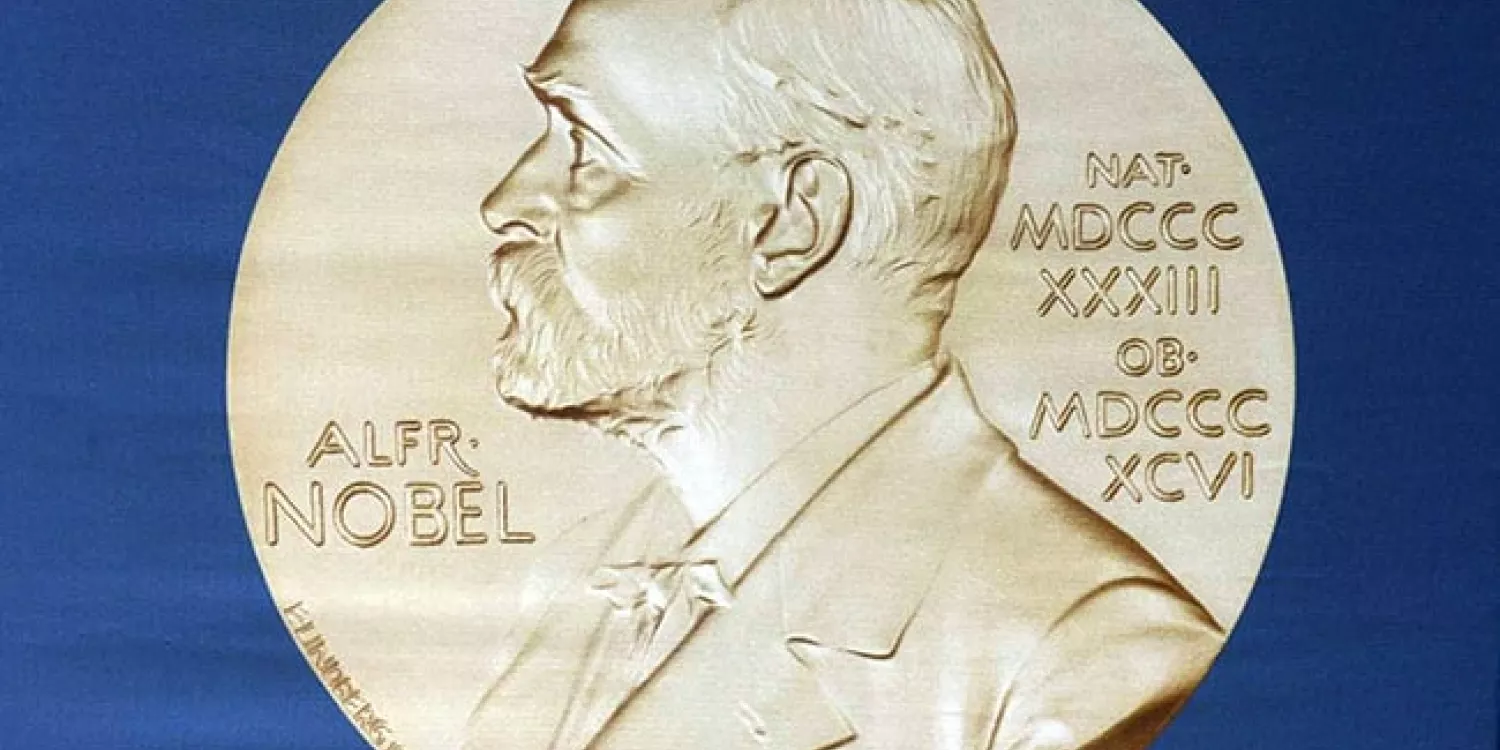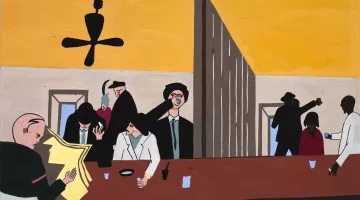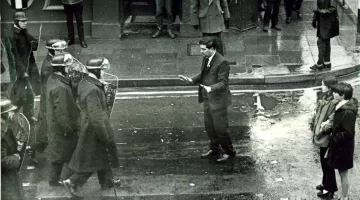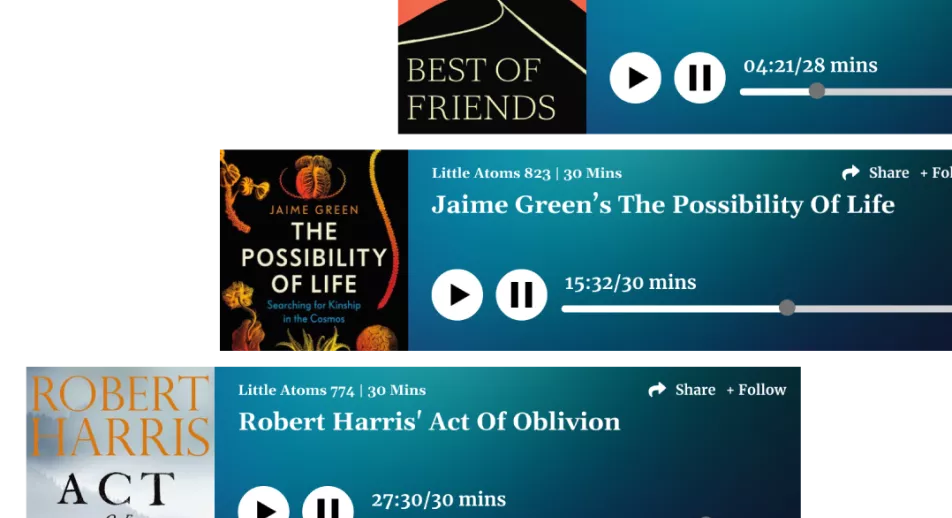Was Peter Handke’s revisionism lost in translation?
It’s likely the Nobel committee had not read the controversial laureate’s decades of praise for Serbian war criminals

The Nobel Prize for Literature is back. After a one year break, in which the committee was supposed to address corruption and sexual assault scandals, the Swedish jury announced its winners on Thursday, and immediately kicked off another controversy.
Instead of awarding more non-European and fewer male writers, as they had announced in the run-up to the award, the 2018 and 2019 awards went to two Central European writers: Olga Tokarczuk, a celebrated Polish novelist, and Peter Handke, an Austrian novelist, poet and translator, whose work has achieved cult status among some – and who has been widely criticised for over 20 years. Both writers are masters of prose, and both are interested in travel and the human experience. That’s where the similarities end.
With these winners, the Swedish Academy that awards the Prize has shown itself to follow a strange, chaotic strategy. Tokarczuk is a writer who opposes and unmasks nationalism in her fiction. Flights, a novel about travel and borders, won her and her translator Jennifer Croft the Man Booker International Prize in 2017. Her work has frequently brought her in opposition to the nationalist Polish government and its supporters: her magnum opus, The Books of Jacob (out in English in 2021) deconstructs a nationalistic idea of Polish history that excludes minorities and ignores the complexity of a multiethnic empire. While her breakthrough in English has only come over the last few years, Tokarczuk is already a well-known name elsewhere. She has also been widely translated, including into Swedish, and won multiple international prizes; the consensus is that she is a worthy winner whose ongoing body of work deserves attention.
Peter Handke, on the other hand, is a baffling choice. For many years, Handke was among the most celebrated Austrian post-war writers, as influential and respected for his oeuvre as Thomas Bernhard or fellow Nobel Prize winner Elfriede Jelinek. Handke’s lyricism, his efforts to find a new language to describe seemingly marginal things, brought him many admirers; A Sorrow Beyond Belief, a short novel in which episodes from daily life evoke the quiet desperation of an ordinary woman, is on the school syllabus in Austria. From the 1960s to the mid-90s, Handke was the beloved enfant terrible of Austrian literature, a cranky presence opposed to everything, and in particular the crusty, bourgeois Viennese establishment.
But in 1996 he published A Journey to the Rivers: Justice for Serbia, a travelogue in which he characterises Serbia as a victim of the Yugoslav War. The backlash that followed is an early example of someone being cancelled: booksellers returned Handke’s work and announced they wouldn’t sell it anymore; protesters turned up at his events; and in 2006 he turned down the prestigious Heinrich Heine Prize in response to widespread criticism of his nomination. His work stopped being translated into other languages, including English and Swedish – which, as we will see, is relevant to how prizes are awarded.
Handke, who refers to himself as a socialist, has called Yugoslavia “almost an ideal” state. He regarded the dissolution of Yugoslavia as a tragedy, and the independence of Slovenia and Croatia as a crime.
His admiration for Serbian leader Slobodan Milošević was at least partly a result of a kind of twisted nostalgia for an anti-capitalist wonderland that had never existed. That nostalgia quickly turned into something nasty and blinkered. His support for Serbia, which he saw as taking the side of an unfairly maligned underdog, was based on opinion, not evidence: instead of admitting that the Serbian regime, while not the sole perpetrator of atrocities, instigated war crimes, Handke went so far as to first deny, then relativise the Srebrenica massacre (he claimed the victims were Bosnian soldiers, when in fact they were mostly civilians), and supported the regime as it went to war in Kosovo. His devotion to the cause even saw him converting to Serbian Orthodoxy.
Handke’s initial stated aim of wanting to counter the negative stereotypes of the Serbian people turned into blind – and puzzling – nationalism. He remained a staunch defender of Milošević and, alongside Harold Pinter, signed a declaration defending him while he was on trial in the Hague – he regarded the handing over of Milošević to the International Criminal Tribunal for the former Yugoslavia as “Serbia’s eternal shame”.
Later he gave a eulogy at Milošević’s funeral in front of more than 20,000 fans. Handke willingly let himself be turned into a tool of cultural diplomacy by a Serbian regime desperate for international allies.
The argument that the artist can be separated from his political opinion is questionable at best, because it assumes that the work exists independently of the creator. Yet the Swedish Academy has stated that they made the judgement on purely aesthetic grounds, based on Handke’s work.
But what about that work? In Handke’s case, it is inseparable from his views: over the last 23 years, he has written numerous travelogues and novellas that support and illustrate his pro-Serbian views. Handke, most commentators seemed to agree, had moved into a parallel universe of “alternative facts”. For years, German-language critics have strongly critiqued the substance of his work; they have pointed out that his writing is a subtly dangerous manipulation of facts, the work of a skilled Serbian nationalist who is better than most at creating images that distort the truth – while seeming innocent on the surface. Handke’s travelogues may read beautifully, but his lyricism both masks and support an outdated and dangerous ideology.
If Handke’s work is eminently political, then how can the aestheticism argument be used?
Key to the controversy is in the politics of publishing in translation.
While Handke’s classics from the 1970s and 80s have been translated into many languages, including Swedish and English, his later works haven’t. Since 1996, most of his books about Serbia haven’t been accessible to non-German speakers. This pre-selection of what is or isn’t published in translation surely has an impact on the selection of prize winners: judges award according to what they’ve read, and if they don’t have linguistic access to the writing that reflects Handke’s politics, it’s easier to separate work and artist. The illusion that Handke’s oeuvre is made up of poetically impressive work that can be read while ignoring his interviews, speeches, and eulogy is only possible in translation.
German-speakers don’t have that questionable luxury: though some try to argue against an autobiographical reading of Handke’s work), Handke’s politics are evident in his travelogues and novellas.
Reactions to the prize have been mixed in Austria and Germany, with some critics focusing on the plurality of Handke’s work and others criticising the choice.
Elsewhere, reaction has been strongly negative. The literature and freedom of expression organisation PEN America issued a statement condemning the award, rejecting “the decision that a writer who has persistently called into question thoroughly documented war crimes deserves to be celebrated for his ‘linguistic ingenuity.’”
There are echoes here of another previous prize controversy. In 2014, Handke received the prestigious Norwegian Ibsen Prize. In the ensuing debate, questions of freedom of expression and artistic responsibility were discussed, with writers like Karl Ove Knausgård and Jon Fosse taking Handke’s side. Handke hadn’t been translated into Norwegian for 15 years prior to the award; here, too, the line between the political person and his work seemed more easily drawn than it actually was. Here, too, his defenders, including Knausgård, celebrated him as “one of Europe’s great writers” and minimised his political activities as that of a man who refused to be politically correct.
Handke turns out to be the most contemporary of winners: a man past his prime, enthralled by alternate facts, and selected by voters working with incomplete evidence.





